Netto is planning to introduce more clearance lines to its stores in a move that will shift its offer closer to that of variety discount retailers B&M Bargains and Home Bargains than its traditional rivals Aldi and Lidl.
The Grocer has learnt that the discount supermarket has been meeting residual wholesalers to discuss its new strategy.
"They came in and said they'd been too rigid and had lost their way," said one wholesaler. "They said they planned to do more business with us this year."
The clearance lines, or one-offs, typically make up about 30% of B&M and Home Bargains ranges and come from either residual wholesalers or direct from manufacturers who offload their products because they are close to their sell-by date, are damaged or because an order has been cancelled with one of the multiples.
The rapidly expanding chains take the products because they know they can sell them quickly and also attract footfall from customers who visit every week to find out what new products are available.
Netto's market share remained at 0.7% in the 12 weeks to 27 December 2009 [Kantar Worldpanel], lagging behind Aldi at 3.1% and Lidl at 2.3%.
A move towards more clearance lines would make sense for Netto, said one wholesaler: "I don't know why people put them in with the likes of Aldi and Lidl," he said.
"They are already more like Home Bargains and B&M than a discount supermarket."
However, a rival retailer questioned if Netto would be able to react quickly enough to the fast-paced residual market. "They will have to deal instantly and give their buyers the power to do that. Stock goes so quickly and cash is king."
Another wholesaler expressed concern that manufacturers would not want their products sold in such a high-profile retailer. "Many brand owners have started directing their residual stock away from TJ Morris and B&M because they have become too high-profile. Brand owners want their residual stock sold discreetly to independent small discounters so that their primary marketing campaigns are not undermined by heavily discounted products."
Netto said it would continue to source any grocery and non-food lines that offered a great value deal to customers. "Traditionally, we have always traded with both branded suppliers and wholesalers and this strategy remains unchanged," said trading director Bent Holm.
The change in strategy follows the admission from Netto's global CEO Claus Juel-Jensen to The Grocer in May last year that Netto UK had "not been good enough" after operating profits dropped 50% in 2008.
"There were a lot of grocers that were not good enough at reading the signs in the market and changing their profile, giving the customers what they actually wanted."
The Grocer has learnt that the discount supermarket has been meeting residual wholesalers to discuss its new strategy.
"They came in and said they'd been too rigid and had lost their way," said one wholesaler. "They said they planned to do more business with us this year."
The clearance lines, or one-offs, typically make up about 30% of B&M and Home Bargains ranges and come from either residual wholesalers or direct from manufacturers who offload their products because they are close to their sell-by date, are damaged or because an order has been cancelled with one of the multiples.
The rapidly expanding chains take the products because they know they can sell them quickly and also attract footfall from customers who visit every week to find out what new products are available.
Netto's market share remained at 0.7% in the 12 weeks to 27 December 2009 [Kantar Worldpanel], lagging behind Aldi at 3.1% and Lidl at 2.3%.
A move towards more clearance lines would make sense for Netto, said one wholesaler: "I don't know why people put them in with the likes of Aldi and Lidl," he said.
"They are already more like Home Bargains and B&M than a discount supermarket."
However, a rival retailer questioned if Netto would be able to react quickly enough to the fast-paced residual market. "They will have to deal instantly and give their buyers the power to do that. Stock goes so quickly and cash is king."
Another wholesaler expressed concern that manufacturers would not want their products sold in such a high-profile retailer. "Many brand owners have started directing their residual stock away from TJ Morris and B&M because they have become too high-profile. Brand owners want their residual stock sold discreetly to independent small discounters so that their primary marketing campaigns are not undermined by heavily discounted products."
Netto said it would continue to source any grocery and non-food lines that offered a great value deal to customers. "Traditionally, we have always traded with both branded suppliers and wholesalers and this strategy remains unchanged," said trading director Bent Holm.
The change in strategy follows the admission from Netto's global CEO Claus Juel-Jensen to The Grocer in May last year that Netto UK had "not been good enough" after operating profits dropped 50% in 2008.
"There were a lot of grocers that were not good enough at reading the signs in the market and changing their profile, giving the customers what they actually wanted."








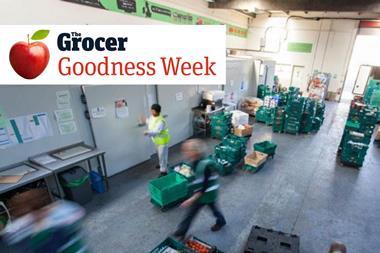
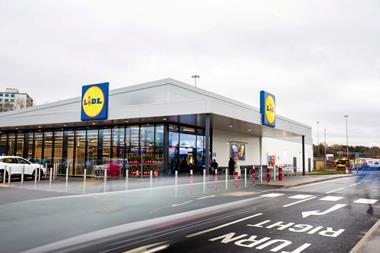
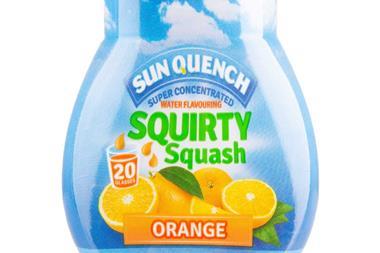
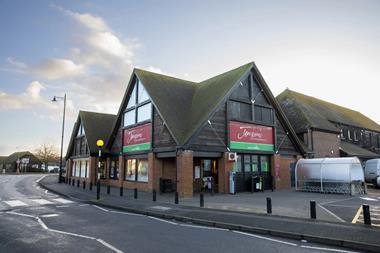
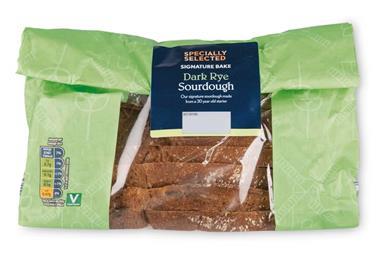






No comments yet